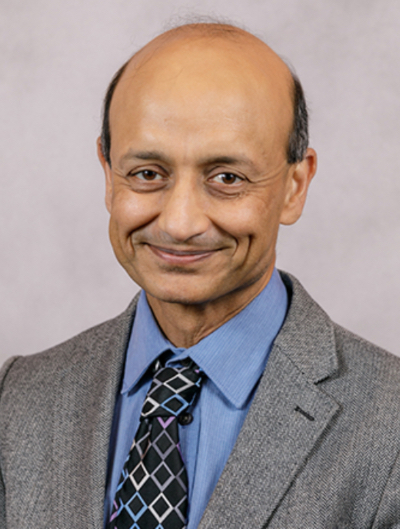Monitoring Time Trends in Cancer Incidence
About the research

Sanjib Basu, PhD, is the Paul Levy and Virginia F. Tomasek Professor of Biostatistics. He also serves as the Director of the Center for Biostatistical Development and is the Lead for the Biostatistics Section of the Division of Epidemiology and Biostatistics. He is a Fellow of the American Statistical Association, an Elected Member of the International Statistical Institute, and President-Elect (2020) of the International Indian Statistical Association.
In the diverse spectrum of biostatistics, which spans from health sciences to statistical theory and methodology, the theme of Basu’s research is to understand and to address the nontrivial biostatistical methodological problems underlying the health science studies. He has developed new approaches to monitoring time trends in cancer incidence and mortality by applying his research on cure models, mixture models and competing risk. His work on modeling cancer survival data from the Surveillance Epidemiology and End Results (SEER) program compares with the CANSURV software of the National Cancer Institute. His methodological research on competing risks from other causes for cancer patients was funded by an award from the National Science Foundation.
Basu’s research on epigenetics, which is the study of changes in gene functions that do not involve changes in the genetic code itself, and cancer outcomes was funded by the National Cancer Institute. His current interests include the big data problem of identifying differentially methylated regions of the genome and their mediating effects on cancer outcome. As a UI Cancer Center member, he has been involved with colleagues in proposing biostatistical approaches for understanding spatio-temporal aspects of social determinants of health on cancer outcomes.
Basu is part of several research teams at UIC. One such project is funded by the National Institute of Environmental Health Sciences and is developing innovative biostatistical methods of identification and feature selection of weak effects, identifying causal pathways and understanding causal effects of environmental chemical mixtures. Basu is also working with UIC’s Associate Vice Chancellor, Population Health Sciences Program Dr. Jerry Krishnan on biostatistical methods in pragmatic clinical effectiveness trials, and with the Institute for Healthcare Delivery Design on the Health Delivery System Transformation project, led by Dean Wayne H. Giles.